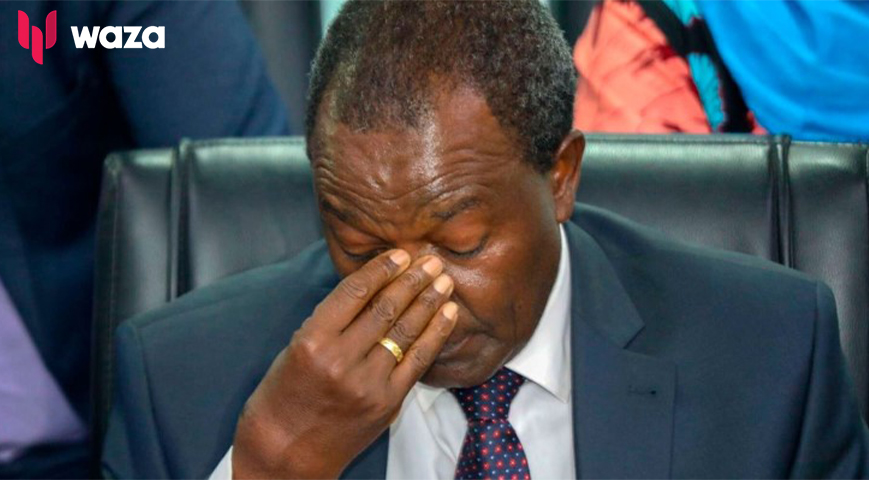 Treasury officials faced intense scrutiny from the Committee on Delegated Legislation over a decision made in 2020 to grant Blue Nile Rolling Mills Limited billions in irregular tax exemptions. During the session, documents presented revealed that the tax relief was awarded illegally, bypassing the required legislative process.
Treasury officials faced intense scrutiny from the Committee on Delegated Legislation over a decision made in 2020 to grant Blue Nile Rolling Mills Limited billions in irregular tax exemptions. During the session, documents presented revealed that the tax relief was awarded illegally, bypassing the required legislative process.
Committee Chair Samuel Chepkong’a questioned the legitimacy of the gazette notice cited by the Treasury officials, asking if it was an Act of Parliament. The officials admitted it was not. It soon became apparent that the document relied upon was not domesticated under Kenyan law and did not align with the East African Community (EAC) Act.
Nyando MP Jared Otieno pointed out that while the Kenyan Constitution recognizes international treaties, they must go through a proper parliamentary process to be domesticated. He questioned why this necessary process was not followed, rendering the document unrecognized in Kenya.

Further concerns were raised about the apparent trend of revising Finance Laws to benefit specific companies. Chepkong’a demanded documentation explaining why Blue Nile received additional amendments to its agreement in January 2020, just a month after the initial agreement was signed. He questioned whether these amendments were made to protect the company from perceived disadvantages.
Kiambaa MP John Kawanjiku, who had earlier sought a statement on the issue, criticized the tax exemptions granted to steel millers, specifically Blue Nile. The Special Operating Framework Arrangement (SOFA) that Blue Nile signed with the government in 2020 exempts the company from paying corporate income tax up to 10%, as well as from Value Added Tax (VAT), Import Duty, Import Declaration Fees (IDF), and Railway Development Levy (RDL) on raw material imports for 10 years. This agreement has been blamed for destabilizing the steel industry, as other manufacturers struggled to compete.
During the committee session, Treasury officials were unable to provide clear answers regarding how much Blue Nile had benefited from these tax exemptions, instead deferring the question to the Kenya Revenue Authority (KRA). They also failed to produce documentation proving the company’s compliance with SOFA requirements, including the claim that Blue Nile had "ring-fenced" the export of galvanized wires.
The committee learned that, despite claims of compliance, Blue Nile employed only 300 Kenyans, far below the required majority of Kenyan employees. Additionally, the company’s operating capital was only Ksh. 2.5 billion, significantly less than the Ksh. 10 billion requirement for SOFA eligibility.
The committee expressed concern over potential collusion between Treasury officials and the State Law Office, leading to skewed legal opinions benefiting select individuals. Kawanjiku highlighted the detrimental impact of these actions on the local steel industry and taxpayers, especially as the Kenya Revenue Authority struggles with a tax deficit exceeding Ksh. 370 billion.
With over Ksh. 400 billion spent on tax exemptions last year alone, the committee requested two more weeks to investigate Blue Nile’s operations and other companies that may have benefited from similar illegal exemptions. President William Ruto has urged Parliament to establish stricter laws to regulate the production industry, support local investment, and ensure profitability for job creation.









